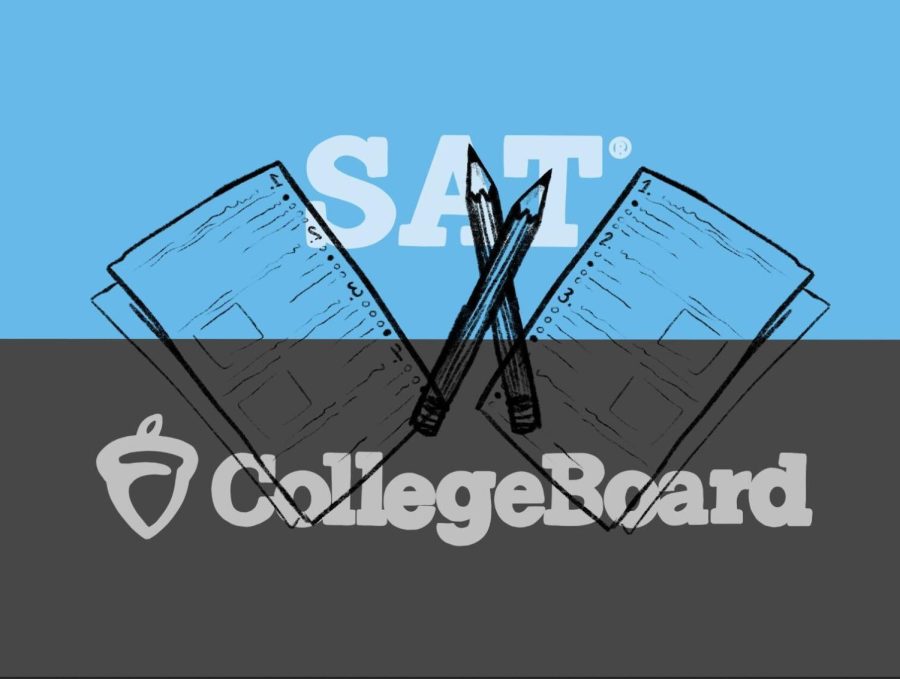The SAT Isn’t the Problem
The SAT seems to have quickly lost importance in recent years, mainly due to most colleges being test-optional. However, it can still be a helpful way to estimate a student’s performance in university, given that access to resources is provided and colleges continue to evaluate applications holistically.
October 5, 2022
The Scholastic Aptitude Test, otherwise known as the SAT, was once a dreaded cornerstone of college admissions. Students study tirelessly for the assessment, purchasing expensive preparatory textbooks and courses in any attempt to get an upper hand. When the grim day finally comes, the frenzy in the school is palpable. Following the pandemic however, nearly all top schools have now given students the option to withhold their scores (with the exception of a few). Most students hold the opinion that this test seems to be diminishing in importance. Despite this development, standardized tests still hold a crucial role in college admissions and should continue to be assessed.
The SAT was originally designed to measure a student’s academic readiness for college. The questions test intermediate literacy, numeracy and writing skills needed to handle undergraduate coursework. Although this purpose has been convoluted through years of complaints and changes, it still holds value in demonstrating a student’s ability to prepare for a test of a particular skill set. The fact is, test scores are one tiny part of a holistic admissions process. Gone are the days when acceptance to a university was conditional upon a few numbers— now students have to prove their excellence in all facets of their life. While other factors such as extracurriculars and recommendation letters allow students to stand out, standardized questions give colleges a way to compare all students on a uniform scale. It’s not so outrageous to argue that evaluating SAT scores as one aspect of the application process is fair.
Countless students deal with extenuating life circumstances that limit their focus on academics. Some bus tables to bring in a source of income for their family; others face a daily struggle with their mental health and wellbeing. Some argue the problems these students have make it unethical to expect stellar performance from them on standardized tests. Although their situations are an unfortunate truth, they are a special case affecting all aspects of a student’s admissions profile. Just as they don’t have the ability to study extensively for the SAT, they can’t put maximum effort into being debate captains or playing for the soccer team. Steps need to be taken to improve the quality of these student’s lives, but the SAT is not necessarily the root problem. When admissions officers look at applications from these students, they should recognize the challenges they face and keep that in mind when evaluating everything from activity lists to the test itself.
While the SAT may not necessarily be inequitable in itself, access to resources does need to be fairly distributed so all students have the same chance to succeed. Preparatory resources should be made available on a large scale— school districts and boards need to prioritize the allocation of resources to that cause. Steps are already being taken in this direction, such as Round Rock Independent School District (RRISD) providing reduced-price courses in affiliation with Princeton Review. Khan Academy has also become a powerhouse for standardized test preparation, gaining funding from generous donors rather than individual consumers. If resources like this become more widespread, they can help bridge the gap for students in unfortunate circumstances.
Although the frenetic stress surrounding the SAT may not be necessary, it still serves as a valuable indicator of where students fall on the scale of academic readiness. Students worldwide may chime in with their objections, but the reality is that college admissions are an uneven playing field in all its facets. There are definite issues that need to be addressed, but unfortunately, the underlying problem does not start or end with the SAT.



